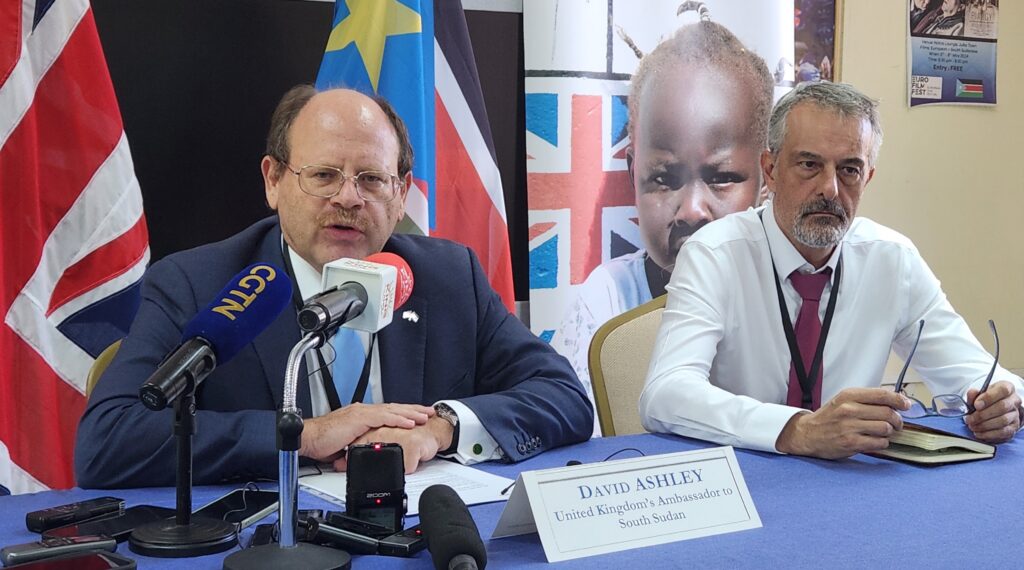The United Kingdom on Wednesday pledged to maintain humanitarian assistance to South Sudan despite pressures on its international aid budget.
Newly appointed British Ambassador to South Sudan, David Ashley, told a press conference in Juba that he had met President Salva Kiir to present his credentials and reaffirm the UK’s “enduring commitment” to the country. He emphasized that the British Embassy would remain in Juba, continuing its support for “peace, development, and humanitarian efforts.”
Ashley, who arrived in Juba in January 2025, said the UK would provide humanitarian assistance over the next 12 months despite funding constraints.
“This funding will deliver critical food and medical support to the most vulnerable,” he said. “International assistance can only complement, not replace, the efforts of the government of South Sudan. More of South Sudan’s own resources need to be devoted to providing health care, education, and humanitarian assistance for its people.”
Since South Sudan’s independence, the UK has provided $2.2 billion in aid, focusing on health, education, peacebuilding, and humanitarian relief. Ashley cited notable achievements, including enabling more than one million children to attend school and vaccinating over 1.5 million people against deadly diseases.
“Our priority is simple: to support peace and development so that the people of South Sudan can fully enjoy the fruits of their hard-won independence,” he said.
However, he acknowledged significant challenges, worsened by the conflict in Sudan and climate change. Ongoing violence, he said, was exacerbating the crisis.
“The UK deeply regrets the serious and repeated violations of the ceasefire since February, including the recent bombing of the MSF hospital in Fangak on May 3,” Ashley said.
“Peace must be the basis for development. The world, the region, and certainly the people of South Sudan cannot afford another war here,” he added. “The United Kingdom strongly supports the efforts of the international community, led by IGAD, the African Union, and the United Nations. We urge all parties to return to dialogue, implement an immediate ceasefire, and release all political detainees, including the first vice-president.”
Ashley expressed concern over delays in South Sudan’s political transition, stressing the need for credible elections.
“The transition has already gone on far longer than anyone would have wanted—notably the people of South Sudan,” he said. “Simply extending again—as we say in English, ‘kicking the can down the road’—would not serve South Sudan’s interests. We sincerely hope that with goodwill, it will be possible to enable a free and fair election by the end of next year. But what has happened in recent months is making that very difficult.”
He outlined key conditions for credible polls, including security for voters and candidates, adequate resources, and equal access to media.
Despite several Western nations closing their embassies in Juba, Ashley confirmed the UK would remain.
“The UK will stay in Juba. We respect the decisions of other countries to close their embassies for various reasons, whether temporarily or due to financial pressures,” he said. “The UK will stay, and we will continue to support the people of South Sudan. Our priorities are peace and development.”




